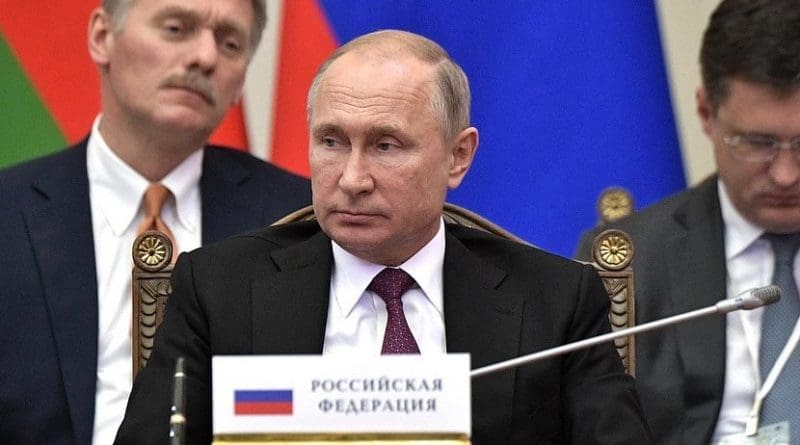Putin Formally Signs Off On Constitutional Changes That Allow Him To Extend Power
By RFE RL
(RFE/RL) — Russia’s Constitutional Court convened for an urgent session on March 14 to launch a review of constitutional amendments that, among other changes, would allow Vladimir Putin to run again for president in 2024.
The court session follows the 67-year-old Putin’s signing of the package of amendments earlier in the day and is expected to yield a decision within a week.
News of the signing, via a state website, came a day after it was reported that all of Russia’s regional parliaments had voted in favor of the measures.
The constitutional changes are due to be put to a nationwide vote in April.
In January, Putin announced a major shake-up of Russian politics and a constitutional overhaul, which the Kremlin described as a redistribution of power from the presidency to parliament.
But earlier this week, Putin, who is in his fourth presidential term and has been president or prime minister of Russia for two decades, appeared in the State Duma to back a new amendment that would allow him to ignore a current constitutional ban on him running again in four years’ time.
The previous rules forbade him from running for a third consecutive mandate, but that changes with the provisions of the amendments, meaning he can seek a fifth overall presidential term in 2024, and conceivably a sixth in 2030.
The Kremlin notes that Putin has not said whether or not he will run again in 2024.
Other constitutional changes further strengthen the presidency and emphasize the priority of Russian law over international norms — a provision reflecting the Kremlin’s irritation with the European Court of Human Rights and other international bodies that have often issued verdicts against Russia.
The changes also outlaw same-sex marriage and mention “a belief in God” as one of Russia’s traditional values.
Both houses of the national parliament have already backed the changes as has every single regional parliament.
“The Federation Council [the upper house of parliament] has received the results of voting in all 85 regional parliaments,” said Andrei Klishas, chairman of the council’s committee on constitutional law. “They are all positive,” RIA cited him as saying on March 13.
The list of 85 regions he referenced includes two which are part of Russian-controlled Crimea, which Moscow forcibly annexed from Ukraine in 2014.
Vyacheslav Volodin, the speaker of the State Duma, Russia’s lower house of parliament, urged its members on March 12 to rally behind Putin against what he said was a foreign campaign to discredit the constitutional reforms.

